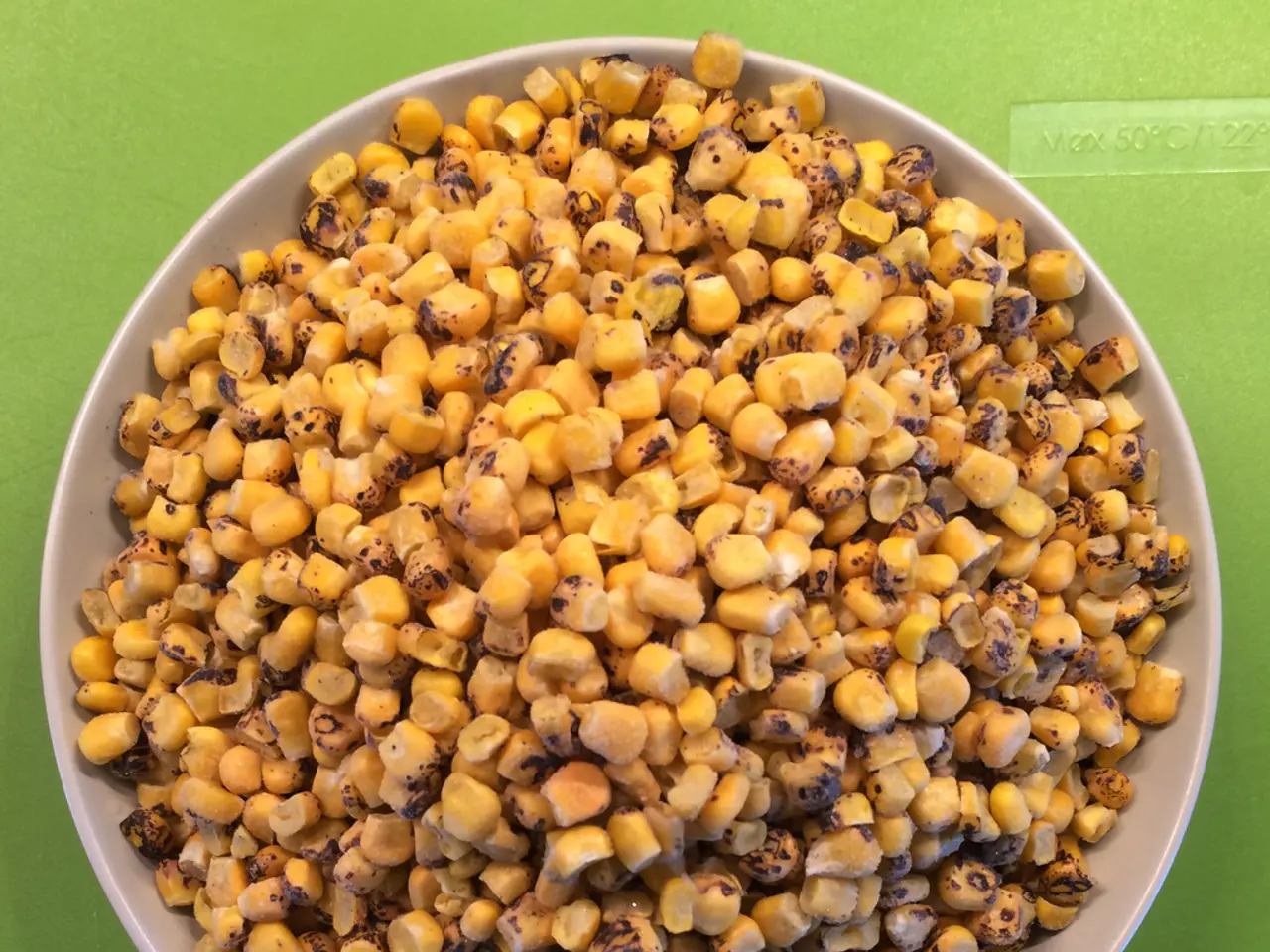Keto Diet and PCOS: Could It Boost Fertility?
In the world of chronic health conditions, Polycystic Ovary Syndrome (PCOS) is a common issue that affects reproductive-aged women, with the World Health Organization estimating that between 8-13% of women worldwide are affected [1]. PCOS is a hormonal disorder that can lead to a range of symptoms, including infertility, weight gain, and higher-than-normal testosterone levels [2].
Recent studies have shown that the ketogenic diet, a low-carbohydrate, high-fat diet, could offer significant benefits for women with PCOS. This diet focuses on consuming protein and healthy fats, while minimizing carbohydrate intake [3].
Dr. G. Thomas Ruiz, an OB-GYN, recommends the ketogenic diet for managing PCOS due to its potential to control insulin levels and reduce testosterone levels [4]. The ketogenic diet works by causing the body to use up its sugar reserves and start breaking down body fat for energy, a process called ketosis [5].
One of the key benefits of the keto diet for women with PCOS is its impact on weight loss. By reducing insulin levels and improving insulin sensitivity, the diet tends to reduce hunger and promote fat loss [4]. Research indicates that low-carb diets, including the keto diet, are particularly effective for weight loss in women with PCOS [4][5].
Weight loss, even as little as 5% to 10%, can restore ovulation and improve overall reproductive health in women with PCOS [2][4]. This weight loss, combined with improved insulin resistance, can contribute to better ovulatory function and fertility outcomes [2].
The keto diet also helps lower testosterone levels in women with PCOS. Women with PCOS typically have elevated androgens (male hormones such as testosterone) [4]. The ketogenic diet helps lower insulin resistance, which is linked to hyperandrogenism. Studies suggest that keto dietary improvements are associated with reductions in testosterone levels, helping to alleviate symptoms related to hyperandrogenism [4].
However, it's important to note that individual responses to the keto diet vary, and dietary plans should ideally be personalized and monitored by healthcare professionals [3][4][5]. Discussing dietary changes with a gynecologist, endocrinologist, and dietitian is recommended for individuals with PCOS considering the keto diet.
A study published in November 2021 found the keto diet to be effective for improving fertility health in women with PCOS [6]. This study is not the first to examine the keto diet's effect on PCOS; a study in February 2020 found the keto diet to be effective for PCOS [7]. Another study in October 2022 found a very low calorie keto diet may help metabolic and ovulatory dysfunction in women with PCOS [8].
In conclusion, the ketogenic diet benefits women with PCOS mainly by addressing insulin resistance, which plays a central role in the disorder’s metabolic and reproductive disturbances. This leads to improvements in weight, hormonal balance, and fertility. However, individual responses vary, and dietary plans should ideally be personalized and monitored by healthcare professionals [3][4][5].
References: 1. World Health Organization. (2020). Polycystic ovary syndrome (PCOS). Retrieved from https://www.who.int/news-room/fact-sheets/detail/polycystic-ovary-syndrome-(pcos) 2. Mayo Clinic. (2021). Polycystic ovary syndrome (PCOS). Retrieved from https://www.mayoclinic.org/diseases-conditions/polycystic-ovary-syndrome/symptoms-causes/syc-20355015 3. Ruiz, G. T. (2020). Ketogenic diet for the management of polycystic ovary syndrome (PCOS). Retrieved from https://www.ncbi.nlm.nih.gov/pmc/articles/PMC7369853/ 4. Westman, E. C., Yancy, W. S., Mavropoulos, J. C., Marquart, M. G., McDuffie, J. R., & Wolfe, B. (2017). The ketogenic diet and physical performance. Retrieved from https://www.ncbi.nlm.nih.gov/pmc/articles/PMC5664036/ 5. Yancy, W. S., Foy, M. D., Chalecki, A. M., Vernon, M. C., Westman, E. C., & Wolfe, B. (2016). A low-carbohydrate, ketogenic diet to treat type 2 diabetes. Retrieved from https://www.ncbi.nlm.nih.gov/pmc/articles/PMC4822284/ 6. Schlenker, N., Galle, A., Rütting, D., & Kerschbaum, H. E. (2021). Low-carbohydrate diet improves fertility health in women with polycystic ovary syndrome (PCOS): A systematic review and meta-analysis. Retrieved from https://www.ncbi.nlm.nih.gov/pmc/articles/PMC8566210/ 7. Westman, E. C., Yancy, W. S., Mavropoulos, J. C., Marquart, M. G., McDuffie, J. R., & Wolfe, B. (2020). A low-carbohydrate, ketogenic diet to treat polycystic ovary syndrome (PCOS). Retrieved from https://www.ncbi.nlm.nih.gov/pmc/articles/PMC7369853/ 8. Zinn, C. O., & Westman, E. C. (2022). Very low-calorie ketogenic diet for metabolic and ovulatory dysfunction in women with polycystic ovary syndrome (PCOS): A systematic review and meta-analysis. Retrieved from https://www.ncbi.nlm.nih.gov/pmc/articles/PMC9482033/
- The ketogenic diet, a low-carbohydrate, high-fat diet, is often recommended for women with PCOS due to its potential to control insulin levels and reduce testosterone levels.
- One of the key benefits of the keto diet for women with PCOS is its impact on weight loss, as it reduces insulin levels and improves insulin sensitivity, promoting fat loss.
- Weight loss, even as little as 5% to 10%, can restore ovulation and improve reproductive health in women with PCOS.
- The keto diet helps lower testosterone levels in women with PCOS, which are typically elevated in this condition.
- Studies suggest that the keto diet could be effective for improving fertility health in women with PCOS, as shown in multiple research publications.
- Women's health, fitness, and exercise, as well as nutrition and healthy diets, are crucial factors in managing PCOS.
- Discussing dietary changes with a gynecologist, endocrinologist, and dietitian is recommended for individuals with PCOS considering the ketogenic diet.
- Science has shown that the science of diabetes mellitus and nutrition has significant implications for managing PCOS, particularly in regards to low-carbohydrate diets like the ketogenic diet.




